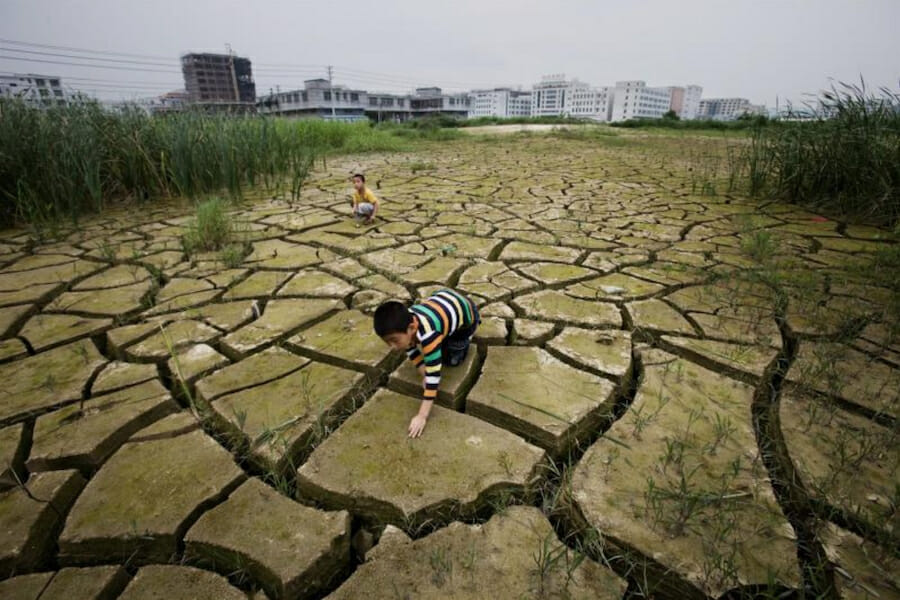
China’s Environment Policy: A Two Level Game
As the UNFCCC (United Nations Framework Convention on Climate Change) Conference begins in Durban, South Africa, there will be few holding their breath that a major breakthrough decision will occur. For its part, China has specifically stated that it is against any binding commitments on carbon levels. Moreover, in 1991 the Beijing declaration set forth the arguments in writing that the “developed countries bear responsibility for the degradation of the global environment…[and] have over-exploited the world’s natural resources…”
China’s position on Climate Change is that yes, it is an issue. But they are unwilling to enter into any internationally binding agreements that limit its ability to make sovereign decisions. This is due in part to China’s development and with it the CCPs legitimacy tied to GDP growth. They must find a way to keep GDP growth high while limiting the impact on the environment and building what Hu Jintao calls a “harmonious society.”
China knows full well the impact that climate and environmental degradation can have on their society. Going back through the turbulent history there are examples of famines and floods where the sheer number of lives lost would equal to the entire population of some western developed states such as Australia or New Zealand.
Yet in this modern era and with China’s integration into the economic system, after the 1978 reforms by Deng Xiaoping, there is a pressing need to change China’s growth model.
China is the factory to the world and as such has paid a high price for the developed world to pay a low one. But the shift is occurring whereby a two-fold action is taking place. First, the price of its labour is increasing against the rise of places like Vietnam. Second, the global players like the United States are not buying en masse the Chinese made goods to fill their Wal-Mart’s like they used too. The US can no longer afford to fuel their bubble economy through pushing consumption patterns.
The reforms taking place in China have put an emphasis on increasing their own internal consumption yet the central government understands the lasting implications the first thirty years of reform and opening have had on the environment. The core problem then is how to implement these types of environmental protection measures in the face of a massive and complicated bureaucracy with a tiao-kuai system. As Kenneth Lieberthal points out in Governing China: From Revolution to Reform, China has a type of “fragmented authoritarianism” meaning that the issues coming from the center do no always get implemented down the line.
Western scholars know the high levels of corruption within China exist and in fact it is quite clear where the party ends and private business begins. This kind of scenario leads to protection from prosecution and overlooking of environmental issues, for example large aluminum plants polluting the local water source. As such environmental issues are widely believed to be a major problem in China by Chinese people themselves and the state. It was a matter of saving face that the CCP spent so much money in 2008 to have clear blue skies during the Olympics by moving many polluting industries into the countryside.
China understands why they don’t have blue skies all over the country. They paid a price for their speedy development by overlooking environmental standards. They advantage of poor regulation is now losing its appeal as costs of degradation are mounting. China is a changing country and has adopted the global view on environmental issues, albeit in a non-binding form. To prove just how serious China is about both tackling its corruption issue as well as its environmental problems, their department leaders were elevated to the Politburo Standing Committee and State Council respectively.
China’s development model was based on exploitation of both its people, as a low cost labour pool, and its environment seen as an unlimited resource. However, the limits to growth are real and have caused strains on the CCP. Their legitimacy is no longer just tied into the keeping GDP growth high, the environment is going to play a crucial part as the millions of peasants in the countryside toil with lack of water, floods, and rising threat of disease.
The Central party leaders in Beijing have enough to worry about, rising inflation, a housing bubble, the likelihood of a demographic time bomb due to aging population, but climate change has also made it to the top agendas. Thus as a two-level game, China is playing both sides quite well. Externally it is trying to extract as many concessions from the other great powers whether it is through a historical responsibility argument or through its advantage in producing cheap green technologies. While internally it has put forth a whitepaper outlining more calls for reductions in carbon and even more investment in alternative sources of energy.
While some observers may say that all of this falls short, I would argue that as the dire situation of climate change becomes more real and the costs of inaction prove higher than action, the CCP will move. They have proven themselves to be more pragmatic in many national policy areas, especially those that threaten the stability and future prosperity of China or more aptly, those of the Party.
